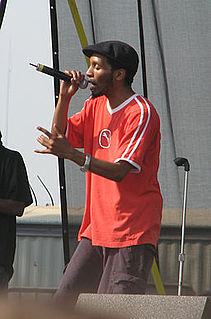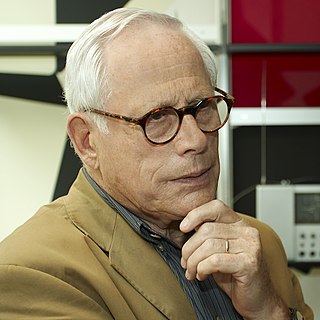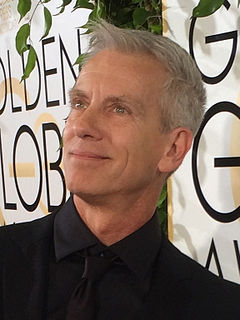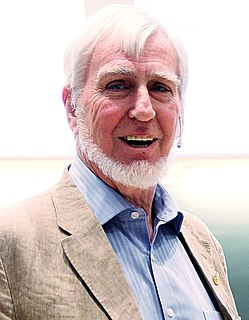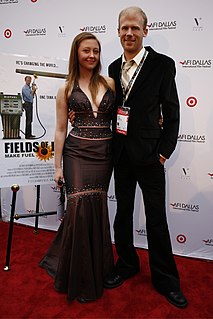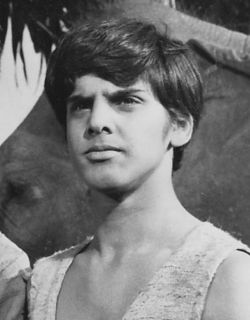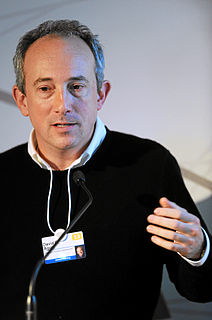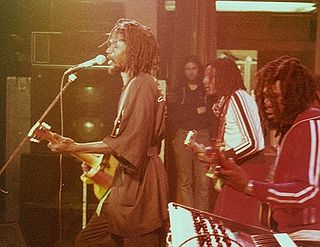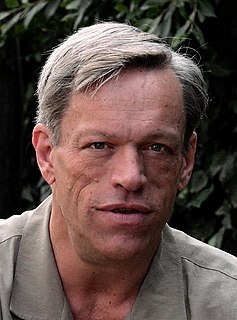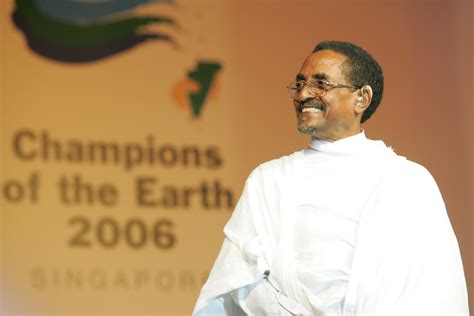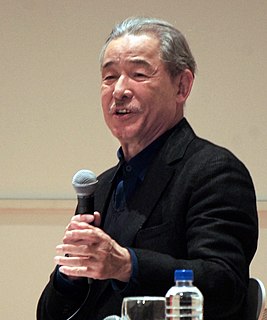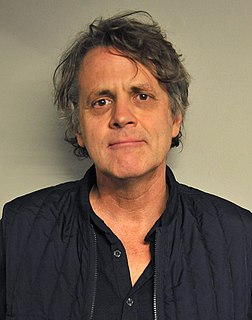Top 1200 Good Technology Quotes & Sayings - Page 15
Explore popular Good Technology quotes.
Last updated on November 15, 2024.
If we're ever going to get the world back on a natural footing, back in tune with natural rhythyms, if we're going to nurture the Earth and protect it and have fun with it and learn from it - which is what mothers do with their children - then we've got to put technology (an aggressive masculine system) in its proper place, which is that of a tool to be used sparingly, joyfully, gently and only in the fullest cooperation with nature. Nature must govern technology, not the other way around.
I used to do my best thinking while staring out airplane windows. The seat-back video system put a stop to that. Now I sit and watch old' Friends' and 'Everybody Loves Raymond' episodes. Walking is good, but here again, technology has interfered. I like to listen to iTunes while I walk home. I guess I don't think anymore.
Nothing we do in this great capital can change the fact that factories or information can flash across the world, that people can move money around in the blink of an eye... Nothing can change the fact that technology can be adopted, once created, by people all across the world and then rapidly adapted in new and different ways by people who have a little different take on the way that technology works.
Ares always reemerges from the chaos. It will never go away. Athenian civilization defends itself from the forces of Ares with metis, or technology. Technology is built on science. Science is like the alchemists' uroburos, continually eating its own tail. The process of science doesn't work unless young scientists have the freedom to attack and tear down old dogmas, to engage in an ongoing Titanomachia. Science flourishes where art and free speech flourish.
Hip hop is just a reflection of what's going on, or where the art is....Technology definitely gives artists a new mind, new voice and creativity. Right now people need to be more places at once....so whatever can get people to the next level to be efficient is how technology is going to be used......The danger is if people are relying too much on the machines, that new mind and new voice always has to come from within.
Good designers must always be avant-gardists, always one step ahead of the times. They should – and must – question everything generally thought to be obvious. They must have an intuition for people’s changing attitudes. For the reality in which they live, for their dreams, their desires, their worries, their needs, their living habits. They must also be able to assess realistically the opportunities and bounds of technology.
You know, the technology was at the right place for us to build this world. The most difficult thing about doing The Croods was no doubt the building of the world. Every single thing in this film is organic. Organic things are tough. Very very labour intensive. And we have no man-made structures. You could argue that everything in this film is really an exterior. Even the interiors of the cave are exteriors. So building this world was the biggest thing of all, and the technology was there to do it.
We live in a world of absolute immediacy. It is an interconnected, combustible world, where technology and many other actions have given nonstate actors a reach, into countries and societies, for both good and evil, that we have never seen before. So it isn't a matter of just state versus state challenges or conflict. The bigger problem is nonstate actors.
There's so much impetus for change, there's so much desire to not have this oil economy continue, but it continues nonetheless. And people often assume that's because technology is not good enough, or there's no money being invested, or it's just not ready yet. It's none of that. It's actually a system of government and corporate behavior that work in collusion and lock step with one another to deflect any momentum toward true alternative energies.
Science and technology were often used by [the magician of old], even before they came into the marketplace on a mass basis. For example, prior to the moving picture going into theatre, magicians were using the technique of images in motion as illusions in their shows. At that time the process was so new, an audience perceived it as magic. Also in the early stages of holograms magicians would use these images to baffle and mystify their fans. Hence, you always need to stay one step ahead of the technology game to "WOW" the audience.
I find that creative streak I think often leads in programmers to be good predictors of where culture as a whole is going to go. And that is where I think I've tried over the years to in some ways use my customers as a filter or a predictor of where technology as a whole is going to go. Or where the world as a whole is going to go.
The truly apocalyptic view of the world is that things do not repeat themselves. It isn't absurd, e.g., to believe that the age of science and technology is the beginning of the end for humanity; that the idea of great progress is delusion, along with the idea that the truth will ultimately be known; that there is nothing good or desirable about scientific knowledge and that mankind, in seeking it, is falling into a trap. It is by no means obvious that this is not how things are.
Although population and consumption are societal issues, technology is the business of business. If economic activity must increase tenfold over what it is today to support a population nearly double its current size, then technology will have to reduce its impact twenty-fold merely to keep the planet at its current levels of environmental impact. For example, to stabilize the climate we may have to reduce real carbon emissions by as much as 80 percent, while simultaneously growing the world economy by an order of magnitude.
Tesla Motors was created to accelerate the advent of sustainable transport. If we clear a path to the creation of compelling electric vehicles, but then lay intellectual property landmines behind us to inhibit others, we are acting in a manner contrary to that goal. Tesla will not initiate patent lawsuits against anyone who, in good faith, wants to use our technology.
Megaupload was a dual-use technology. You can use it for good things, and you can use it for bad things. If someone sends something illegal in an envelope through your postal service, you don't shut down the post office. If someone speeds with the car he just bought, you don't go to the car manufacturer and say, 'Hey, we're shutting you down.'
There is an access to... people can now afford very high quality technology, where you can have a very good reproduction of a large picture on a large screen at home. People go out less. There's all kinds of reasons. I don't know that it's going to stay that way but, I think also, we've got to start making better movies.
Very little in science fiction can transcend the gimmickry of a technical conceit, yet without that conceit at its heart a book is not truly science fiction. Furthermore, so little emerging thought and technology is employed by sf writers today that the genre is lagging far behind reality both in the cosmology area and the technology area: sf is no longer a place to experiment, but is now very derivative.
Historically, the idea that you take something novel and you break it has been seen as the ultimate rejection of Enlightenment values, of progress, of civilization - because how could you possibly move forward if you break technology? I think that that misses the point, that if you introduce any kind of technology, what you're introducing is a new way of living and the consequences of that new way of living for people who were enmeshed in a different way of living need to be thought through.
We need to start training more primary health providers and fewer specialists. We will never be able to control health care costs unless we challenge the over-emphasis on medical research, specialists and technology and put more emphasis on delivering good, everyday basic medicine to those who now have none.
Everything is being synced up, and it's harder to see where the skill starts and the technology starts and ends. Maybe that's a good thing; it's more enjoyable for the listeners, more enjoyable for the party, if you don't need to worry about things falling off. So maybe we can concentrate on other aspects of the art form.
There is a thing called clean coal. Coal will last for 1,000 years in America. Now we have natural gas and so many other things because of technology. We have unbelievable - we have found over the last seven years, we have found tremendous wealth right under our feet. So good. Especially when you have $20 trillion in debt.
The technologies which have had the most profound effects on human life are usually simple. A good example of a simple technology with profound historical consequences is hay. ... It was hay that allowed populations to grow and civilizations to flourish among the forests of Northern Europe. Hay moved the greatness of Rome to Paris and London, and later to Berlin and Moscow and New York.
To many of us now, computers, silicon chips, data processing, cybernetics, and all the other innovations of the dawning high technology age are as mystifying as the workings of the combustion engine must have been when that first Model T rattled down Main Street, U.S.A. But as surely as America's pioneer spirit made us the industrial giant of the 20th century, the same pioneer spirit today is opening up on another vast front of opportunity, the frontier of high technology.
Every disruptive innovation is powered by a simplifying technology, and then the technology has to get embedded in a different kind of a business model. The first two decades of digital computing were characterized by the huge mainframe computers that filled a whole room, and they had to be operated by PhD Computer Scientists. It took the engineers at IBM about four years to design these mainframe computers because there were no rules. It was an intuitive art and just by trial and error and experimentation they would evolve to a computer that worked.
It's good to go back and look at what other states are doing. For example, Mayo Clinics and the University of Minnesota had a collaborative grant program that we modeled our program after, so we went back to talk to them about the successes of their program. It's been very successful, the state is going back to fund it again, and it's resulted in a great deal of collaboration and specifically patented technology.
These modern means of communication are one reason why I recently opposed the Government's decision to grant MPs a new communications allowance. With new technology giving us the opportunity to communicate directly with voters very cheaply, why did Labour MPs vote for a £10,000 allowance to tell voters what a good job they do?
Both instruments are processors of information. Both appeared when nothing quite like them had existed before, and both began to make their effects felt immediately (a situation that isn't invariable with new technology). Both devices were less the result of a single breakthrough than of an evolving set of technologies. Like the computer, the printing press had no one certain inventor; it was a technology whose time had come.
Once you change the technology - from a film camera to a video camera, or from an 8-mm camera to 16 mm - you change completely the content. With 8 mm, a leaf on a tree will be made up of maybe four grains. So it's very impressionistic, almost like Seurat. If you switch to 16 mm, the technology gives you hundreds of grains on that leaf.
The great question for our time is, how to make sure that the continuing scientific revolution brings benefits to everybody rather than widening the gap between rich and poor. To lift up poor countries, and poor people in rich countries, from poverty, to give them a chance of a decent life, technology is not enough. Technology must be guided and driven by ethics if it is to do more than provide new toys for the rich.
Oil platforms are a technology for floating permanently on the high seas, and cruise ships are a technology for self-governance on the high seas, and if you combine these two technologies, imagine cruise ships that never dock but float permanently. Imagine if they were 10 times as big. Imagine if they were modular and could move about and you could choose the neighbours you wanted to live with.
The Nuffield report suggests that there is a moral imperative for investment into GM crop research in developing countries. But the moral imperative is in fact the opposite. The policy of drawing of funds away from low-cost sustainable agriculture research, towards hi-tech, exclusive, expensive and unsafe technology is itself ethically questionable. There is a strong moral argument that the funding of GM technology in agriculture is harming the long-term sustainability of agriculture in the developing world.
I have always been interested in conducting research that yielded new methods by which to make cloth, and in developing new materials that combine craftsmanship and new technology. But the most important thing for me is to show that, ultimately, technology is not the most important tool; it is our brains, our thoughts, our hands, our bodies, which express the most essential things.
Physiologically, man in the normal use of technology (or his variously extended body) is perpetually modified by it and in turn finds ever new ways of modifying his technology. Man becomes, as it were, the sex organs of the machine world, as the bee of the plant world, enabling it to fecundate and to evolve ever new forms. The machine world reciprocates man's love by expediting his wishes and desires, namely, in providing him with wealth.
AMD's history is we've always had great technology. We've had periods of time where we've done really, really well, and we've had periods of time where we've done not so well. But most of the time we've done well, it's because we've had a leadership product or some technology where we were out in front before anybody else.
The most central and irrational faith among people is the faith in technology and economical growth. Its priests believe until their death that material prosperity bring enjoyment and happiness - even though all the proofs in history have shown that only lack and attempt cause a life worth living, that the material prosperity doesn't bring anything else than despair. These priests believe in technology still when they choke in their gas masks.
I think China thinks information technology is less important than we think it is in the US, economically, and more important politically. And so Chinese internet companies are extremely political, they're protected behind the great firewall of China, and investment in Alibaba is good as long as Jack Ma stays in the good graces of the Chinese communist party. Alibaba is largely copying various business models from the US; they have combined some things in interesting new ways, but I think it's fundamentally a business that works because of the political protection you get in China.
The solutions put forth by imperialism are the quintessence of simplicity...When they speak of the problems of population and birth, they are in no way moved by concepts related to the interests of the family or of society...Just when science and technology are making incredible advances in all fields, they resort to technology to suppress revolutions and ask the help of science to prevent population growth. In short, the peoples are not to make revolutions, and women are not to give birth. This sums up the philosophy of imperialism.
To this day, we see all around us the Promethean drive to omnipotence through technology and to omniscience through science. The effecting of all things possible and the knowledge of all causes are the respective primary imperatives of technology and of science. But the motivating imperative of society continues to be the very different one of its physical and spiritual survival. It is now far less obvious than it was in Francis Bacon's world how to bring the three imperatives into harmony, and how to bring all three together to bear on problems where they superpose.
The solution was eventually found by Johannes Gutenberg, who made the breakthrough that finally established printing as the communication technology of the future. Similar ideas may have been under development around the same time in Prague and Haarlem. But in business, the key question is not about who else is in the race, it's about who gets there first. Johannes Gutenberg was the first to make the new technology work, ensuring his place in any history of the human race.
I've been working in computer animation for 25 years. I'm obviously a devotee of the technology. I just think it's the one aspect of the medium that's going to continue to revolutionize the filmmaking. It's constantly changing and it's constantly opening up new possibilities. The technology is evolving where 2-D animation was ultimately limited by how long you could pay how many people to make a movie. I mean computers, not that it's in anyway a labor saving device, but it promises to open up exciting new technical possibilites.






